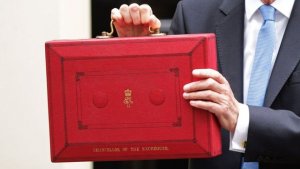- Tax & Estate Planning

Shorter Reads
Keir Starmer launches Labour manifesto
Our Private Wealth team share their initial thoughts on the UK Labour Party Election Manifesto, released today:
2 minute read
Published 13 June 2024
Key information
- Specialisms
- Private Wealth
- Services
- Tax & Estate Planning
- Partner James Austen comments on Labour’s refusal to rule out a rise in Capital Gains Tax (CGT):
“While not one of their manifesto commitments, Labour has not ruled out increasing CGT rates. In fact, Sir Kier Starmer has repeatedly refused to do so when questioned on it during this election campaign, and Rachel Reeves advocated a CGT rate rise in a 2018 pamphlet, so it remains a definite possibility notwithstanding the manifesto’s silence.
If Labour were to raise the rate of CGT – potentially bringing it into line with income tax (currently, a maximum of 45%) – this could even come as soon as an emergency budget in the first few weeks of the new government.
Though not a particularly large source of tax revenue, raising CGT rates could nonetheless provide a Labour government with room for additional spending, which would otherwise be difficult to fund given the party’s promise not to raise VAT, NI or income tax.
Traditionally, CGT rates are fixed for the whole of a tax year, from 6 April in one year until 5 April in the following year. However, there is precedent for an immediate mid-year CGT rate rise: George Osborne did this when increasing CGT from 18% to 28% in 2010. As a result, taxpayers with assets standing at a material gain might wish to take advice on triggering disposals of those assets at current tax rates before the election on 4 July.”
- Senior Associate Aidan Grant discusses the new Stamp Duty Land Tax (SDLT) surcharge:
“The Labour Party has confirmed their intention to increase the rate of SDLT paid by overseas purchasers of UK residential property by 1%, building on the existing 2% surcharge introduced in 2021 by the Johnson administration. When coupled with the additional property surcharge, this means that an overseas purchaser owning multiple UK properties would now face total surcharges of 6% (over and above the normal SDLT rates) when compared with similar purchases only a few years ago.
Labour claim that this change will raise revenue of £40m by 2028/29, which will be used to support local planning authorities by funding additional planning officers. However, in practice this undoubtedly represents Labour picking up the Conservatives’ mantle of attempting to discourage foreign ownership in the UK housing market.
As with all changes to SDLT, it remains to be seen whether this will accelerate purchases and push up prices on valuable prime real estate in anticipation of the introduction of the new rate.”
- Associate Cameron Crees shares his thoughts on Labour’s stance regarding the non-dom regime:
“As promised, there are no new tax pledges in this manifesto. That being said, the non-dom regime, or as the Labour name them, the non-dom “loopholes”, will be abolished and replaced with a new “modern scheme”. There is no clarity at this early stage as to what this term means, though changes which increase clarity would always be welcome. Further details are only likely when draft legislation is published.
Labour commit to only one fiscal event (i.e., Budget) a year. In all probability, this means that radical change will come sooner rather than later and will not be incremental. Considering the timing of the election, it is perhaps a safe assumption that the next fiscal event will be an Autumn Budget, with legislation in place for the 2025/26 tax year. Labour’s funding breakdown states that the new policies will be fully enforced, taxes paid and policies funded by the 2028/29 tax year, indicating that they wish to move quickly. From experience, rushed drafting of legislation commonly results in difficulties in interpretation and implementation (and, ironically, inadvertent “loopholes”).
The Labour manifesto states that they will “end the use of offshore trusts to avoid inheritance tax”. To the extent that this is predicated on retrospective changes to the long-established ‘excluded property’ tax regime, then this is concerning. It does seem, though, that the purpose of this statement is to discourage wealthy foreigners from shielding their non-UK assets in trust ahead of any rules being changed, which Labour is known to have seen as a “loophole” in the Conservatives’ similar proposals. However, once again, we will only know the position for sure once the legislation has been passed. This will come of no comfort for those remaining non-dom individuals who wish to remain in the UK but are presently stuck in a limbo of uncertainty.
Broadly, this manifesto confirms much of what we already know. Regardless, we advise affected individuals to review their current tax affairs and take considered advice on what options they may have.”
For more information, visit our Trusts, Tax and Estate Planning page.
Related content
Shorter Reads
Keir Starmer launches Labour manifesto
Our Private Wealth team share their initial thoughts on the UK Labour Party Election Manifesto, released today:
Published 13 June 2024
Associated sectors / services
Authors
- Partner James Austen comments on Labour’s refusal to rule out a rise in Capital Gains Tax (CGT):
“While not one of their manifesto commitments, Labour has not ruled out increasing CGT rates. In fact, Sir Kier Starmer has repeatedly refused to do so when questioned on it during this election campaign, and Rachel Reeves advocated a CGT rate rise in a 2018 pamphlet, so it remains a definite possibility notwithstanding the manifesto’s silence.
If Labour were to raise the rate of CGT – potentially bringing it into line with income tax (currently, a maximum of 45%) – this could even come as soon as an emergency budget in the first few weeks of the new government.
Though not a particularly large source of tax revenue, raising CGT rates could nonetheless provide a Labour government with room for additional spending, which would otherwise be difficult to fund given the party’s promise not to raise VAT, NI or income tax.
Traditionally, CGT rates are fixed for the whole of a tax year, from 6 April in one year until 5 April in the following year. However, there is precedent for an immediate mid-year CGT rate rise: George Osborne did this when increasing CGT from 18% to 28% in 2010. As a result, taxpayers with assets standing at a material gain might wish to take advice on triggering disposals of those assets at current tax rates before the election on 4 July.”
- Senior Associate Aidan Grant discusses the new Stamp Duty Land Tax (SDLT) surcharge:
“The Labour Party has confirmed their intention to increase the rate of SDLT paid by overseas purchasers of UK residential property by 1%, building on the existing 2% surcharge introduced in 2021 by the Johnson administration. When coupled with the additional property surcharge, this means that an overseas purchaser owning multiple UK properties would now face total surcharges of 6% (over and above the normal SDLT rates) when compared with similar purchases only a few years ago.
Labour claim that this change will raise revenue of £40m by 2028/29, which will be used to support local planning authorities by funding additional planning officers. However, in practice this undoubtedly represents Labour picking up the Conservatives’ mantle of attempting to discourage foreign ownership in the UK housing market.
As with all changes to SDLT, it remains to be seen whether this will accelerate purchases and push up prices on valuable prime real estate in anticipation of the introduction of the new rate.”
- Associate Cameron Crees shares his thoughts on Labour’s stance regarding the non-dom regime:
“As promised, there are no new tax pledges in this manifesto. That being said, the non-dom regime, or as the Labour name them, the non-dom “loopholes”, will be abolished and replaced with a new “modern scheme”. There is no clarity at this early stage as to what this term means, though changes which increase clarity would always be welcome. Further details are only likely when draft legislation is published.
Labour commit to only one fiscal event (i.e., Budget) a year. In all probability, this means that radical change will come sooner rather than later and will not be incremental. Considering the timing of the election, it is perhaps a safe assumption that the next fiscal event will be an Autumn Budget, with legislation in place for the 2025/26 tax year. Labour’s funding breakdown states that the new policies will be fully enforced, taxes paid and policies funded by the 2028/29 tax year, indicating that they wish to move quickly. From experience, rushed drafting of legislation commonly results in difficulties in interpretation and implementation (and, ironically, inadvertent “loopholes”).
The Labour manifesto states that they will “end the use of offshore trusts to avoid inheritance tax”. To the extent that this is predicated on retrospective changes to the long-established ‘excluded property’ tax regime, then this is concerning. It does seem, though, that the purpose of this statement is to discourage wealthy foreigners from shielding their non-UK assets in trust ahead of any rules being changed, which Labour is known to have seen as a “loophole” in the Conservatives’ similar proposals. However, once again, we will only know the position for sure once the legislation has been passed. This will come of no comfort for those remaining non-dom individuals who wish to remain in the UK but are presently stuck in a limbo of uncertainty.
Broadly, this manifesto confirms much of what we already know. Regardless, we advise affected individuals to review their current tax affairs and take considered advice on what options they may have.”
For more information, visit our Trusts, Tax and Estate Planning page.
Associated sectors / services
- Tax & Estate Planning
Authors
Need some more information? Make an enquiry below.
Subscribe
Please add your details and your areas of interest below
Article contributors
James
AustenPartner
Specialising in UK trusts, tax & estate planning, Contentious trusts & probate, Private wealth and Tax disputes & investigationsAidan
GrantPartner
Specialising in International trusts, tax & estate planning, Private wealth, UK trusts, tax & estate planning and US/UK Tax & estate planningCameron
CreesAssociate
Specialising in Digital, International trusts, tax & estate planning, Private wealth, UK trusts, tax & estate planning and Wills & succession planning
Enjoy reading our articles? why not subscribe to notifications so you’ll never miss one?
Subscribe to our articlesMessage us on WhatsApp (calling not available)
Please note that Collyer Bristow provides this service during office hours for general information and enquiries only and that no legal or other professional advice will be provided over the WhatsApp platform. Please also note that if you choose to use this platform your personal data is likely to be processed outside the UK and EEA, including in the US. Appropriate legal or other professional opinion should be taken before taking or omitting to take any action in respect of any specific problem. Collyer Bristow LLP accepts no liability for any loss or damage which may arise from reliance on information provided. All information will be deleted immediately upon completion of a conversation.
Close




































































